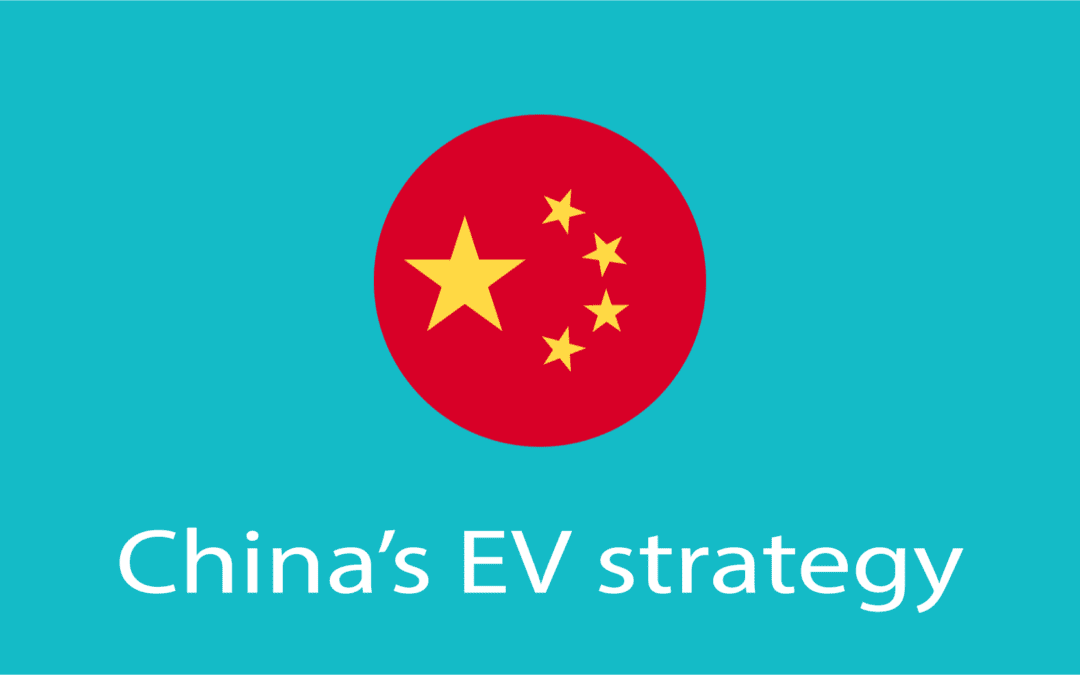
Be warned Big Auto, the China EV strategy is to dominate!
The Chinese Government released its long-term development plan for the automotive sector on the 25th of April 2017, setting out the China EV strategy. The plan, presented by the Ministries of Science and Technology and Ministry of Industry and Information Technology in conjunction with National Development and Reform Commission, sets out how the country will ramp up the local EV sector and dominate the world market.
If successful the Chinese auto sector can leapfrog the dominance of the big auto companies, such as Toyota, VW, BMW, Daimler, Ford, and GM. Big Auto has missed the boat on electric vehicles and therefore continue to downplay the technology as only a niche sector. Management boards of big auto companies are flip-flopping strategy as they try and come to grips with how to enter the market and to what extent they should invest in research in technology. BMW last week announced that EVs constituted 3% of its total sales for the first quarter of 2017 after a jump in EV sales of 50% (Top 5 EV News Week 18). With the release of the data, the company set out how it will introduce more models. The news from BMW is in stark contrast from news only six months earlier when the Board grappled with if it should pursue EVs at all (Top 5 EV News Week 49  2016). In the USA we have recently seen how newcomer Tesla is valued above Ford and GM by investors. The response by Big Auto and other detractors of EVs was that this is a temporary phenomenon, arguing that Tesla hardly produces one tenth of the vehicles any of the top brands does. If one look at total sales of Battery Electric Vehicles (BEVs), it seems investors on the other hand value companies on their future ability to produce electric vehicles. If the same apply for Chinese brands, we can very quickly expect a Chinese brand to ascend the list of top auto brands.
2016). In the USA we have recently seen how newcomer Tesla is valued above Ford and GM by investors. The response by Big Auto and other detractors of EVs was that this is a temporary phenomenon, arguing that Tesla hardly produces one tenth of the vehicles any of the top brands does. If one look at total sales of Battery Electric Vehicles (BEVs), it seems investors on the other hand value companies on their future ability to produce electric vehicles. If the same apply for Chinese brands, we can very quickly expect a Chinese brand to ascend the list of top auto brands.
According to the plan by the Chinese Government, it set a short-term target of EV sales of 2 million units locally by 2020 and at the same time elevate Chinese auto brands to be seen amongst the top ten electric vehicle brands globally. The medium term target is that EVs contribute 20% of the total annual fleet by 2025, which is a huge amount of cars. Measuring the movement in sales by brand in the table below we can already see the top Chinese EV brands, BAIC, SAIC, Geely Zhidou and JMC moving higher and two brands, BAIC and BYD in the top ten list for the first quarter 2017. Other evidence of Chinese companies investing heavily in the sector includes Chinese IT company, Tencent acquiring a significant stake in Tesla, sparking a rally in the stock.

Measures by the Chinese Government to achieve the targets above include:
- Financial and tax support for New Energy Vehicle (NEV) companies;
- Making it easier for foreign companies to enter the Chinese market by improving foreign investment regulations and liberalizing the existing cap on foreign ownership stakes in joint venture enterprises;
- Promoting R&D through incentives;
- Subsidies to consumers through tax benefits;
- The Chinese Government is further considering incentives for parts and components manufacturers, smart and connected cars and other fields that will help Chinese companies lead the future auto sector;
- The Export-Import Bank of China will assist Chinese NEV companies to go global.
China already has experience of setting itself to dominate a sector and achieving set goals. Less than a decade ago the Chinese Government plotted to dominate the PV panel market and in the process brought down the price of energy production from renewables, killing some western PV manufacturers in coal plants in the process. Already we are seeing a deluge of battery cell plants being planned by the end of the decade in China. We can, therefore, expect the same domino effect as in the energy markets, taking out auto manufacturers that were slow to embrace electric vehicles.
Interested in learning more about Chinese electric vehicles? Download our fun and easy app below, flick the China switch and swipe left the models you don’t like, right the ones you do, enter the chat rooms and share your thoughts with the community.








